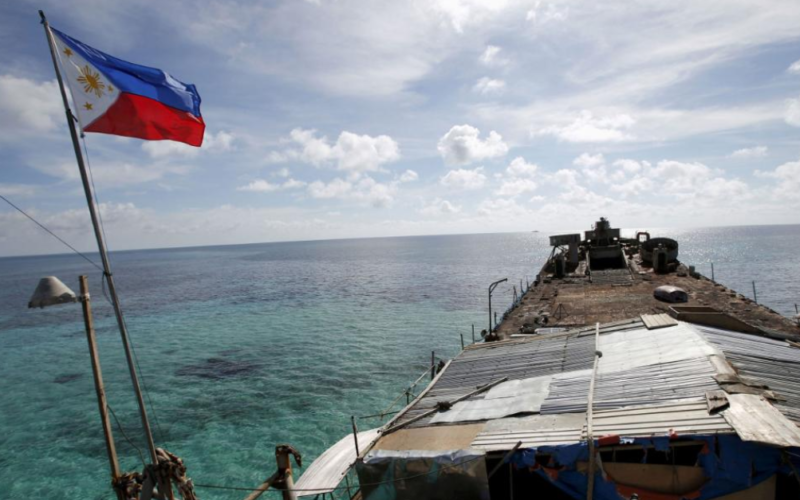In a bold move affirming its sovereignty, the Philippines has firmly rejected China’s demand for prior notification regarding its resupply missions in the contested South China Sea. The Philippines’ foreign ministry emphasized the legitimacy of these operations, including the necessary “upkeep” of a grounded navy ship. This development further underscores the ongoing tensions in the region, with the Philippines urging China to address “illegal structures” within its exclusive economic zone (EEZ) and cease reclamation activities causing environmental damage.
The Department of Foreign Affairs (DFA) of the Philippines asserted that the country is not obligated to notify China about its resupply missions in the South China Sea. These operations, crucial for sustaining Filipino soldiers stationed aboard a navy ship grounded at the disputed Second Thomas Shoal, were deemed legitimate. The Philippines dismissed China’s accusations of illegal entry, emphasizing the necessity of resupply missions without the need for prior notification.
In response to China’s persistent claims and actions in the South China Sea, the DFA called on China to dismantle all “illegal structures” erected within the Philippines’ exclusive economic zone. The Philippines demanded an immediate cessation of reclamation activities, emphasizing that China must be held accountable for the environmental damage caused by such actions. This firm stance indicates the Philippines’ commitment to protecting its territorial integrity and preserving the ecological balance of the region.
China has long asserted its sovereignty over nearly the entire South China Sea, drawing controversial territorial lines that encroach upon the exclusive economic zones of neighboring countries, including Vietnam, the Philippines, Malaysia, Brunei, and Indonesia. The Philippines has consistently rejected these claims, referring to the contested area as Ayungin Shoal, while China identifies it as Renai Reef. Taiwan, also in dispute with China over its territorial claims, has rejected Beijing’s maps and its assertion of authority over the region.
The rejection of China’s demand for prior notification signifies the Philippines’ assertiveness in protecting its sovereignty and interests in the South China Sea. The ongoing tensions and disputes have prompted the Philippines to uphold its rights to conduct resupply missions without seeking approval from China. The move underscores the broader regional dynamics, where nations are navigating complex geopolitical challenges while safeguarding their territorial integrity.
The Philippines’ firm rejection of China’s call for prior notice on resupply missions reflects the nation’s commitment to assert its sovereignty in the face of territorial disputes in the South China Sea. The ongoing tensions highlight the complexities of navigating geopolitical challenges in the region, with the Philippines standing its ground on legitimate operations within its exclusive economic zone. As the situation evolves, diplomatic efforts and international scrutiny will continue to play a crucial role in addressing the contested claims and maintaining stability in this strategic maritime area.








